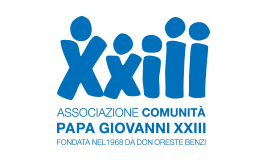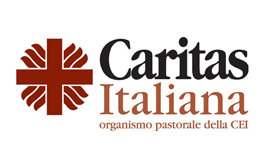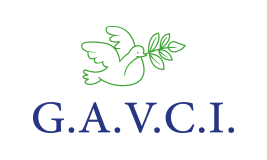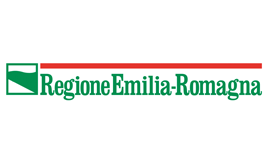Accra Pulses with Change – Tracking the Swiftly Changing National Narrative as ghana news today spotlights grassroots movements and civic engagement.
- Resilient Republic Rising: Examining current ghana news today and charting a course for sustained progress and inclusive growth.
- Economic Performance and Recent Indicators
- Political Landscape and Governance Reforms
- Strengthening Anti-Corruption Measures
- Ensuring Electoral Integrity
- Decentralization and Local Governance
- Infrastructure Development and Investment
- Social Development and Human Capital
- Improving Access to Education
- Strengthening Healthcare Systems
- Addressing Poverty and Inequality
- Regional Integration and International Relations
Resilient Republic Rising: Examining current ghana news today and charting a course for sustained progress and inclusive growth.
Ghana stands at a pivotal moment in its history, navigating a complex tapestry of economic challenges and opportunities. Understanding ghana news today is crucial for investors, policymakers, and citizens alike as the nation strives for sustained growth and greater inclusivity. Recent developments in infrastructure, governmental policy shifts, and evolving socio-political dynamics are shaping the future of this West African nation.
This article delves into the current landscape of Ghana, examining key indicators and providing a nuanced perspective on the nation’s trajectory. We will explore advancements, address persisting hurdles, and forecast potential paths forward, offering a comprehensive overview of the forces at play in this resilient republic.
Economic Performance and Recent Indicators
Ghana’s economy, traditionally reliant on commodities like gold, cocoa, and oil, is undergoing diversification efforts. While these commodities remain significant contributors to export revenue, the government is proactively promoting sectors such as technology, tourism, and manufacturing. Recent economic indicators paint a mixed picture. The inflation rate, previously soaring, has shown signs of stabilization, thanks to stringent monetary policies implemented by the Bank of Ghana. However, debt servicing remains a substantial challenge, requiring careful fiscal management and potential restructuring negotiations. Foreign direct investment (FDI) is crucial for sustaining economic growth, and the government is actively seeking to attract investment in key sectors.
| Indicator | 2022 | 2023 (Estimate) |
|---|---|---|
| GDP Growth Rate | 3.4% | 3.6% |
| Inflation Rate (Year-end) | 54.1% | 25.7% |
| Public Debt-to-GDP Ratio | 81.8% | 77.8% |
| FDI Inflow (USD Billions) | 2.3 | 2.6 |
Political Landscape and Governance Reforms
Ghana’s democratic institutions, though relatively stable, face ongoing pressures. The effectiveness of governance is central to sustained development, and initiatives aimed at enhancing transparency, accountability, and citizen participation are paramount. The recent local government elections revealed shifts in public sentiment, highlighting the electorate’s demand for responsive and inclusive governance. Addressing issues of corruption and improving the efficiency of public service delivery are critical priorities for the current administration. Furthermore, strengthening the rule of law and ensuring the independence of the judiciary remain ongoing challenges.
Strengthening Anti-Corruption Measures
Despite progress in many areas, corruption remains a significant impediment to Ghana’s development. The government has implemented several initiatives, including the establishment of the Office of the Special Prosecutor, to investigate and prosecute corruption cases. However, challenges persist in terms of capacity building, resource allocation, and political will. Independent civil society organizations play a crucial role in monitoring and advocating for greater transparency and accountability. Continued efforts to strengthen anti-corruption institutions and promote good governance are essential for fostering investor confidence and ensuring equitable distribution of resources.
Ensuring Electoral Integrity
Ghana has a well-established electoral process, but concerns have been raised regarding voter registration, ballot security, and electoral violence. The Electoral Commission is working to address these issues through biometric registration, improved security measures, and stakeholder engagement. Maintaining a credible and transparent electoral process is critical for preserving public trust and ensuring the peaceful transfer of power. International observation missions continue to play a valuable role in monitoring elections and providing recommendations for improvement. Active civic participation and informed voting are vital components of a healthy democracy.
Decentralization and Local Governance
Efforts to decentralize governance and empower local authorities are underway, but progress has been slow. Increasing the capacity of local governments to plan, implement, and monitor development projects is crucial. Greater fiscal autonomy and access to resources are also necessary to strengthen local governance. Public participation in local decision-making processes should be actively encouraged. Effective decentralization can lead to more responsive and efficient service delivery, fostering greater accountability and promoting sustainable development at the grassroots level.
Infrastructure Development and Investment
Significant investment in infrastructure is underway across Ghana, encompassing roads, railways, ports, and energy. These infrastructure projects are aimed at improving connectivity, reducing transportation costs, and attracting investment. The government is actively seeking public-private partnerships (PPPs) to finance infrastructure development. However, challenges remain in terms of land acquisition, regulatory hurdles, and ensuring project sustainability. Prioritizing infrastructure projects that have the greatest economic and social impact is crucial.
- Expansion of port capacity at Tema and Takoradi.
- Construction of new railway lines to facilitate transportation of goods.
- Investments in renewable energy sources, such as solar and wind power.
- Upgrading of road networks to improve connectivity between regions.
Social Development and Human Capital
Improving social development indicators, such as education, healthcare, and sanitation, is essential for enhancing human capital and fostering inclusive growth. The government has implemented several programs aimed at increasing access to education at all levels. However, challenges remain in terms of quality, equity, and relevance. Addressing disparities in access to healthcare, particularly in rural areas, is also a priority. Investments in sanitation and hygiene infrastructure are crucial for preventing the spread of disease and improving public health. Creating opportunities for skills development and entrepreneurship is essential for empowering the youth and fostering economic participation.
Improving Access to Education
Ghana has made significant strides in increasing access to education, but challenges remain in terms of quality, equity, and relevance. The government is implementing the Free Senior High School policy to provide access to secondary education for all qualified students. However, concerns have been raised about funding sustainability and the impact on educational quality. Investing in teacher training, curriculum development, and educational infrastructure is crucial. Bridging the gap in access to education between urban and rural areas is also a priority. Promoting vocational and technical education can equip students with the skills needed for the job market.
Strengthening Healthcare Systems
Improving access to quality healthcare is essential for enhancing human capital and promoting economic development. The National Health Insurance Scheme (NHIS) provides financial protection against healthcare costs, but challenges remain in terms of financial sustainability and service delivery. Investing in healthcare infrastructure, training healthcare professionals, and improving supply chain management are crucial. Addressing disparities in access to healthcare between urban and rural areas is also a priority. Promoting preventative healthcare and public health education can reduce the burden of disease.
Addressing Poverty and Inequality
Despite economic growth, poverty and inequality remain persistent challenges in Ghana. The government has implemented several social protection programs aimed at reducing poverty and providing support to vulnerable groups. However, these programs often lack adequate funding and are not effectively targeted. Investing in rural development, promoting agricultural productivity, and creating employment opportunities are essential for reducing poverty. Addressing income inequality and ensuring equal access to opportunities for all is crucial for fostering inclusive growth.
Regional Integration and International Relations
Ghana plays a prominent role in regional integration efforts within the Economic Community of West African States (ECOWAS). Enhancing regional trade, promoting peace and security, and fostering cooperation on shared challenges are key priorities. Ghana is also actively engaged in international diplomacy and seeks to strengthen its relationships with key partners, including the United States, the European Union, and China. Navigating complex geopolitical dynamics and promoting its national interests on the global stage require skillful diplomacy and strategic partnerships.
- Active participation in ECOWAS initiatives for economic integration.
- Strengthening bilateral relations with key trading partners.
- Promoting regional peace and security through diplomatic efforts.
- Advocating for Ghana’s interests on the international stage.
The Republic of Ghana is demonstrating considerable fortitude, tackling economic complexities while fostering growth and inclusivity. Continuous evaluation of economic performance, resolute dedication to governance improvements, substantial infrastructure investment, empowered communities through focussed social development, alongside strengthened regional relationships will pave the way for suctained progress for years to come.






Lascia un Commento
Vuoi partecipare alla discussione?Sentitevi liberi di contribuire!